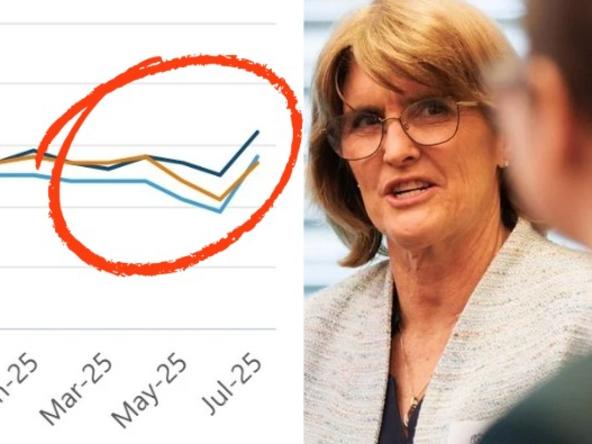R
BA Governor Michele Bullock is facing growing pressure to address inflation, which has surged to its highest level in over a year. The Australian Bureau of Statistics reported that the Consumer Price Index (CPI) jumped 2.8% in the year to July 2025, exceeding the Reserve Bank's 2-3% target band.
The sharp rise in CPI is largely driven by housing costs, which increased by 3.6% over the past 12 months, outpacing gains in food and non-alcoholic drinks. However, electricity prices saw a massive 13.1% surge over the year, with a staggering 13% increase in July alone due to the absence of Energy Bill Relief Fund payments for New South Wales and Australian Capital Territory homes.
Underlying inflation, which strips out volatile categories like fuel and holiday travel, also rose to 3.2% in July from 2.5% the previous month. Trimming mean inflation climbed from 2.1% to 2.7%, suggesting widespread price pressure.
The Reserve Bank's focus has shifted from CPI to the labour market, with CommBank head of economics Belinda Allen stating that a September rate cut is now off the table. The bank expects a further 25bp rate cut in November, but only if labour market data deteriorates significantly.
The RBA board meeting on September 29-30 will consider the cash rate target, influenced by today's CPI release, second monthly CPI, Q2 2025 GDP data, and new labour market data.














